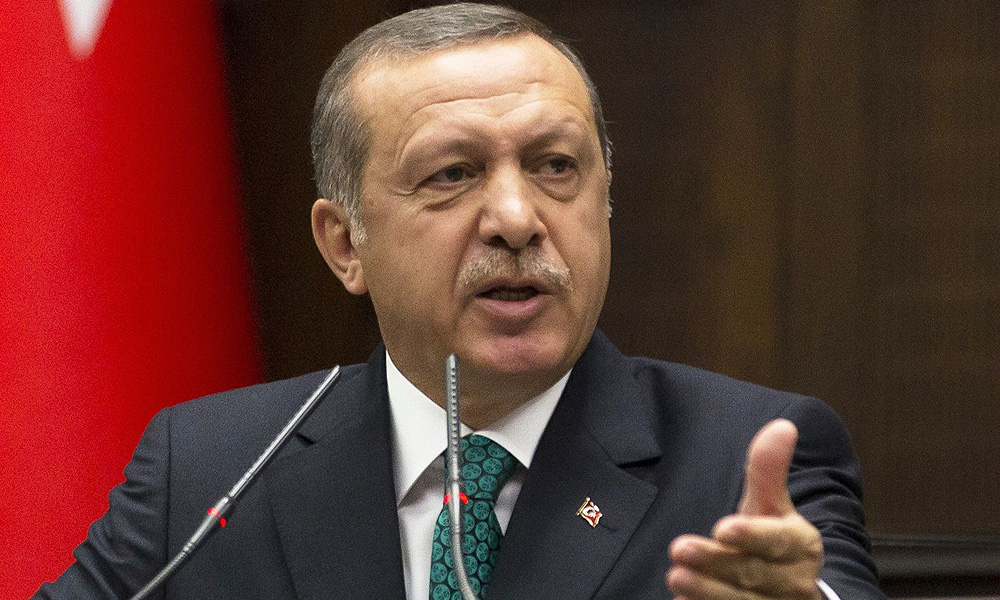Turkey’s main opposition party said on Tuesday its candidate for Istanbul mayor would again contest and win the post, after the election board ordered a re-run of the city election in a ruling that has spooked investors and drawn European criticism.
President Recep Tayyip Erdogan had pushed hard for the re-run after his ruling AK Party (AKP) lost control of Turkey’s biggest city in the March 31 poll and he welcomed the High Election Board’s (YSK) decision.
But one opposition leader compared it to a “civilian coup” and Germany urged Ankara to respect democracy.
Highlighting the risks of a re-run for Erdogan and the AKP, several smaller opposition parties who fielded their own candidates in the March poll signaled that this time around, they could back the ousted mayor, Ekrem Imamoglu of the Republican People’s Party (CHP), a potentially significant move given the tight margin of his original victory.
CHP leader Kemal Kilicdaroglu accused the YSK of betraying voters’ trust and giving in to AKP pressure.
“Since you want to renew the elections so badly, do so as much as you want. We will emerge victorious every time,” he told CHP lawmakers in the Turkish parliament.
Meral Aksener, leader of the nationalist IYI (Good) Party, which formed an alliance with Imamoglu’s secularist CHP for the March vote, said the ruling by the seven judges of the YSK harked back to the era of Turkish military coups.
“The YSK’s decision amounts to a civilian coup which surpasses the days of the uniformed coups,” she said.
Read more: Turkey to re-run Istanbul election lost by Erdogan's AKP
Market jitters
The decision helped push the lira to its weakest level since Oct 5, when it was just emerging from last year’s currency crisis that saw 30 percent of the currency’s value wiped out. It stood at 6.1467 to the dollar earlier in the day.
With investors questioning Turkey’s commitment to both the rule of law and economic reforms during a recession, bonds and stocks were also sold off on Tuesday.

Erdogan (photo) brushed aside investors’ concerns, telling his AKP lawmakers on Tuesday that the YSK decision was “an important step to strengthen our democracy”.
“There was organized corruption and full illegality in the Istanbul mayoral elections,” said Erdogan, adding that former prime minister Binali Yildirim would again be the AKP candidate for the post.
Imamoglu’s surprise victory in the March poll – by a margin of just 13,000 votes, out of 10 million eligible voters – had marked the first time in 25 years that Erdogan’s AKP or its Islamist predecessors had failed to win control of Istanbul.
But Erdogan – who started his political career in the 1990s as mayor of Istanbul – said that, in such a tight race, “no one has the right to say they won” and repeatedly challenged the result.
Control of the city has more than symbolic value. The mayor oversees a budget estimated this year at 24 billion lira (RM16.5 billion), in a city which accounts for about a third of Turkey’s economic output.
Germany’s foreign minister, Heiko Maas, said the YSK move was neither transparent nor comprehensible, adding that basic democratic principles and transparency were paramount.
Turkey’s pro-Kurdish Peoples Democratic Party (HDP), the third biggest party in parliament, said it would repeat its policy in March of not contesting the Istanbul election, a decision which helped Imamoglu.
Two other smaller parties, the Islamist Saadet (Felicity) Party and the Democratic Left Party signaled they might also stand aside in favor of Imamoglu.
Edward Parker, managing director at Fitch Ratings, said the re-run risked distracting from the authorities’ need to rebalance and stabilize the economy.
Fitch last week reaffirmed Turkey’s sovereign rating at ‘BB’ with a negative outlook, but Parker said it could be downgraded if “existing weaknesses are aggravated, especially given the volatility in the Turkish economy and currency.”
The dispute over the Istanbul election and the economic uncertainty come as the United States threatens to impose sanctions on Turkey, a Nato ally, over its planned purchase of Russian S-400 missile defense systems.
- Reuters

